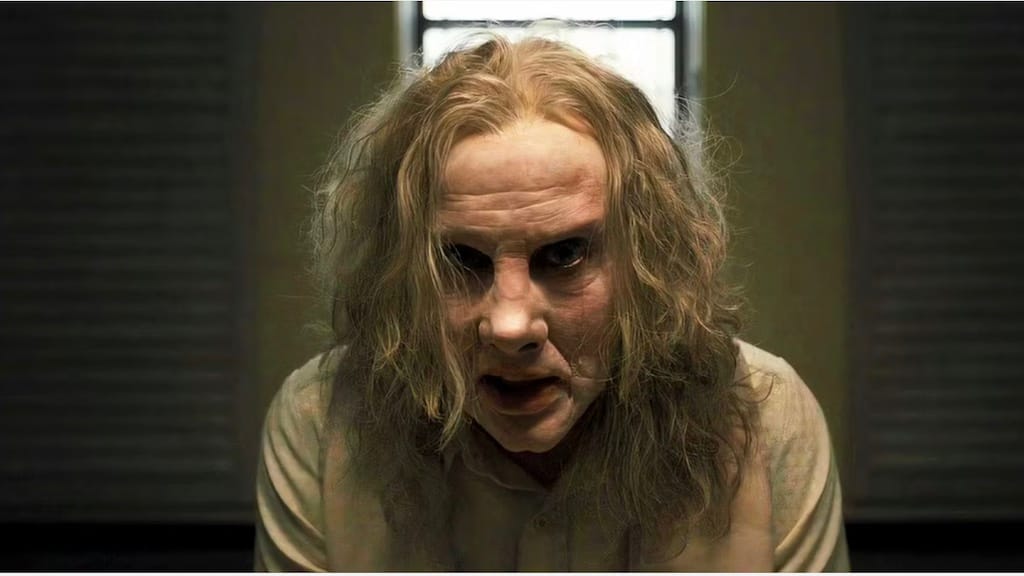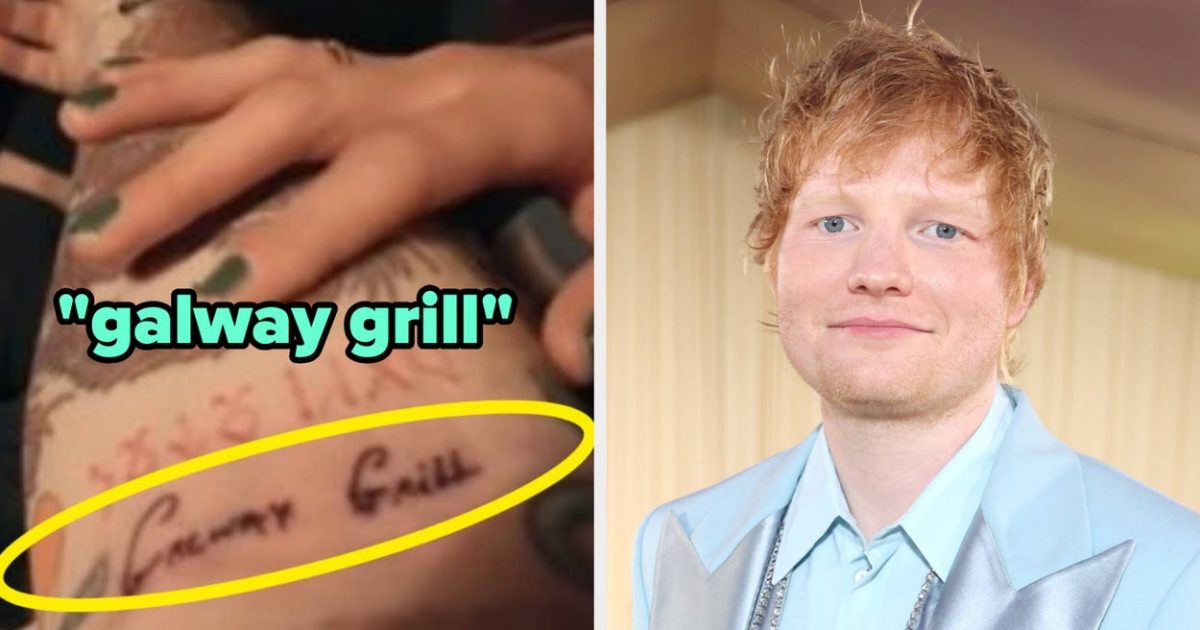
Martin Scorsese’s David Johansen Bio-Doc/Concert Film Offers Maximum Vibes [NYFF]
Jan 6, 2023
First, a confession: I came to “Personality Crisis: One Night Only,” knowing next to nothing about the New York Dolls or its lead singer, David Johansen. Sure I’d heard of them and heard a fair amount of the Dolls’ music, and Johansen’s, and that of his alter ego Buster Poindexter (including the once-ubiquitous “Hot Hot Hot,” which he now calls “the bane of my existence”).
For this viewer— and, for I suspect, a fair number of others — the draw of “Personality Crisis” is Martin Scorsese, who co-directs with his frequent collaborator David Tedeschi. They previously teamed to direct “The Fifty-Year Argument”; Tedeschi edited several of Scorsese’s earlier documentaries, including “Public Speaking,” “No Direction Home: Bob Dylan,” “Shine A Light,” “George Harrison: Living in the Material World,” “Rolling Thunder Revue,” and the Netflix series “Pretend It’s a City.” Their films have a different rhythm than those of Scorsese’s narrative editor, Thelma Schoonmaker, but it’s a collaboration that’s itself proving both fruitful and distinctive.
READ MORE: 2022 New York Film Festival Preview: 14 Must-See Movies
This time, they document Johansen’s performance on January 9, 2020 (his 70th birthday) at Café Carlyle, an awfully tony room for an old punk like him. But the performance is a good fit: a cabaret act with the four-man combo the Boys in the Band Band, part of a residency at the club. “I was in no mood for learning 20 new songs,” he confesses to the crowd, so he decided to put together a set list of Buster Poindexter (“That’s me”) doing songs written or co-written by David Johansen (“That’s me”).
He sports a magnificent pompadour, pencil-thin beard and mustache, rose-colored sunglasses, and black suit that glitters when the light is just so; he looks like a character in a Scorsese movie and not one of the documentaries. And he sings the songs with full-throated emotion, an old man revisiting a young man’s words and ideas and lending his wisdom and experience to them. Between songs, he talks.
“I’m just gonna reminisce for a minute here,” he purrs, “I’m such a sentimental old fool.” Sometimes he tells the stories behind the songs; sometimes, he just tells stories, and that’s fine, too, because he’s a world-class raconteur. (There are many memorable lines, but my favorite may be this summary of one-time New York Dolls fan club president Morrisey: “He’s kind of a gloomy Gertie, but he loved him some Dolls.”)
READ MORE: Fall 2022 Preview: 60+ Must-See Films To Watch
Some of the songs are bridged not by his patter but by documentary segments, making “Personality Crisis” a combination of documentary and concert film. But the style is closer to “Public Speaking” than “The Last Waltz” since so much of the interspersed footage is archival – video, audio, photos – mostly of the subject, some of it of the culture around him. And then there are some new interviews, shot and conducted by his daughter, filmmaker Leah Hennessey. It could be a mess, but the formats work together smoothly; the concert framework allows the filmmakers to be more structurally and formally freewheeling than a more conventional bio-doc, so they leap in, feet-first, and move in more a thematic than chronological manner.
Those sections are nicely immersed in the New York City of the ‘60s and ‘70s and the various scenes and circles he traversed; Johansen shares vivid memories of visiting the famous denizens of the Chelsea Hotel, working productions at the Ridiculous Theatrical Company, participating in Yippie pranks, and delighting in the worlds of avant-garde music and film. Soon, he was making that scene himself; the primary iteration of the Dolls released only two studio albums, but they proved tremendously influential. The music was both fiercely energetic and palpably dangerous, but what really grabbed attention was their stage presence, which was raw and raucous in traditional bad-boy rock fashion while deploying a pronounced gender fluidity in a time when such play was genuinely subversive.
As he got older and grew tired of the demands and damage of the road, Johansen developed Poindexter, “an act that could only play in New York.” The set list is a well-chosen combination of jazz stylings, lounge music, blues riffs, and R&B rave-ups. The Carlyle is an intimate space, so the great cinematographer Ellen Kuras has to get inventive (and/or practical) with camera placement, and does; Tedeschi also edited and keeps things moving at a decent clip, though there are some slow spots in its robust 120-minute running time. (They probably could’ve dropped a song or two, if we’re being honest.)
But the film’s key asset is Johansen, and “Personality Crisis” pulls off the neat trick of serving as an introduction for us newbies while providing new insights and footage for the fans – the latter primarily in the form of the mellow concert footage. Several of the songs have a melancholy sense of survivor’s remorse – he sings them like a man haunted by the ghosts of the bandmates, friends, and contemporaries he outlived. He’s acquired the gravelly-voiced resignation of an old bluesman; he looks sharp, but he’s seen some things. Yet it’s not a dirge. In a key archival clip, he notes, “When there’s time, there’s sorrow,” but then quotes Joseph Campbell: “We cannot rid the world of sorrows, but we can choose to live in joy.”
Great documentaries offer the unique ability to juxtapose a person’s young and old selves and to meditate on how one became the other. When he sings about life and death, it has the heft of Scorsese’s own “The Irishman” – the lyrical equivalent of the scene where his protagonist picks out his own coffin. Entering his eighth decade on earth, David Johanson can croon the hook of “Frenchette” – “I can’t get the kind of love that I want / or that I need / So let’s just dance” – like a man who’s seen the other options, and has made an informed decision. [B+]
The New York Film Festival runs from September 30 to October 16. Follow along for all of our coverage from the festival here.
Publisher: Source link
"We Despised Each Other So Much That It Read As Love": 13 Costar Duos Who Did NOT Get Along
Diane Kruger said, "It kind of sucked. He's dead, so I can say that. But he wasn't the most pleasant person."View Entire Post › Disclaimer: This story is auto-aggregated by a computer program and has not been created or edited…
Dec 25, 2024
19 Best Experience Gifts for Everyone on Your List
Our writers and editors independently determine what we cover and recommend. When you buy through our links, E! may earn a commission. Learn more. As the holidays approach, the last loved one on your list is usually the hardest person to…
Dec 25, 2024
Celebs With Embarrassing Tattoo Mistakes Revealed
If read vertically from top to bottom and horizontally from right to left, which is how Japanese is read, the tattoo translates roughly to say "ring seven fingers." However, if the tattoo is read horizontally from left to right and then…
Dec 24, 2024
Bruce Willis’ Wife Emma Shares Family Photos Amid His Health Battle
Bruce Willis’ wife Emma Heming Willis is cherishing the good times. Almost two years after the Die Hard actor’s wife, his ex-wife Demi Moore, and his kids Rumer Willis, 36, Scout Willis, 33, Tallulah Willis, 30, Mabel Willis, 12, and Evelyn Willis, 10, announced that…
Dec 24, 2024











